Nutrition for Fertility: Supporting Reproductive Health
Hey there, my young and curious friends of 2024! It’s your favorite nutrition explorer, Nita Sharda, here to take you on an exciting journey into the world of nutrition and fertility. Now, I know what you might be thinking – “Fertility? Isn’t that just for grown-ups who want to have babies?” But trust me, understanding how the foods we eat can support our reproductive health is important for everyone, no matter what age we are.
Today, we’re going to put on our explorer hats and discover how nutrition can play a powerful role in supporting fertility and overall reproductive health. But before we dive in, let me make one thing clear – this is not about putting anyone on a strict diet or making them feel like they need to change their bodies. It’s simply about empowering you with the knowledge and tools to make food choices that support your health and wellbeing, both now and in the future.
So, are you ready to join me on this fertility nutrition adventure? Let’s go!
What is Fertility?
First things first, let’s talk about what fertility actually means. Fertility is the ability to conceive and have a baby. It involves a complex interplay of hormones, organs, and other factors that work together to create a new life.
For people with female reproductive organs, fertility depends on the health of the ovaries, fallopian tubes, and uterus. Each month, the ovaries release an egg (or sometimes more than one) in a process called ovulation. If the egg is fertilized by sperm, it travels down the fallopian tube to the uterus, where it implants and grows into a baby.
For people with male reproductive organs, fertility depends on the health of the testes, which produce sperm, and the other organs and glands involved in reproduction, such as the prostate and seminal vesicles.
While fertility is often associated with adulthood and the desire to have children, it’s important to remember that our reproductive health is something we carry with us throughout our lives. The choices we make today – including the foods we eat – can have a big impact on our fertility and overall health down the road.
The Role of Nutrition in Fertility
So, how exactly does nutrition play a role in fertility? Let’s take a closer look.
Providing Essential Nutrients
One of the most important ways that nutrition supports fertility is by providing our bodies with the essential nutrients they need to function at their best. These nutrients include:
- Vitamins and minerals: Vitamins and minerals like folate, iron, zinc, and vitamin D are essential for reproductive health. They help regulate hormones, support the development of healthy eggs and sperm, and ensure proper growth and development of a baby during pregnancy.
- Protein: Protein is important for building and repairing tissues in the body, including reproductive organs. It also helps regulate hormones and support the immune system.
- Healthy fats: Healthy fats, like those found in nuts, seeds, avocados, and fatty fish, are important for hormone production and overall reproductive health. They also help the body absorb fat-soluble vitamins like vitamin D and vitamin A.
- Antioxidants: Antioxidants like vitamin C, vitamin E, and beta-carotene help protect the body from oxidative stress, which can damage reproductive cells and contribute to infertility.
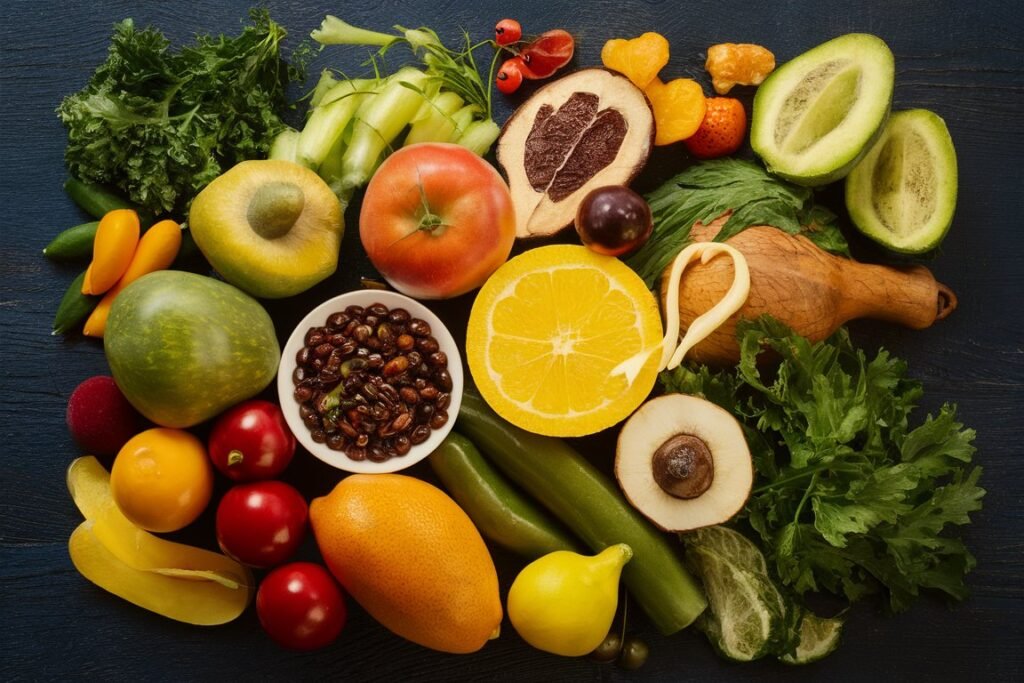
By eating a diet that’s rich in these essential nutrients, we can support our reproductive health and increase our chances of conceiving and having a healthy baby when the time is right.
Maintaining a Healthy Weight
Another way that nutrition supports fertility is by helping us maintain a healthy weight. Being overweight or underweight can disrupt hormone levels and interfere with ovulation and sperm production.
In people with female reproductive organs, being overweight can increase the risk of conditions like polycystic ovary syndrome (PCOS), which can cause irregular periods and make it harder to conceive. Being underweight can also disrupt menstrual cycles and reduce the chances of getting pregnant.
In people with male reproductive organs, being overweight can lower sperm count and quality, while being underweight can reduce testosterone levels and sperm production.
By eating a balanced diet that includes plenty of fruits, vegetables, whole grains, lean proteins, and healthy fats, we can maintain a healthy weight and support our reproductive health.
Reducing Inflammation
Inflammation is a normal immune response that helps our bodies fight off infections and heal from injuries. But when inflammation becomes chronic, it can contribute to a range of health problems, including infertility.
Certain foods, like processed meats, refined grains, and sugary drinks, can promote inflammation in the body. But other foods, like colorful fruits and vegetables, whole grains, and healthy fats, can help reduce inflammation and support reproductive health.
For example, omega-3 fatty acids found in fatty fish like salmon and sardines have anti-inflammatory properties that may help improve fertility. Antioxidants like vitamin C and vitamin E can also help reduce inflammation and protect reproductive cells from damage.
Supporting Gut Health
Believe it or not, the health of our gut can also play a role in fertility. Our gut is home to trillions of bacteria, known as the gut microbiome, that help break down food, absorb nutrients, and support the immune system.
When our gut microbiome is out of balance, it can contribute to inflammation and other health problems that can interfere with fertility. But by eating a diet that’s rich in fiber-rich foods like fruits, vegetables, and whole grains, as well as fermented foods like yogurt and sauerkraut, we can support the growth of healthy gut bacteria and promote overall reproductive health.
Putting It All Together: A Fertility-Friendly Diet
So, what does a fertility-friendly diet actually look like? Here are some tips to help you get started:
- Focus on whole, minimally processed foods: Choose foods that are as close to their natural state as possible, like fresh fruits and vegetables, whole grains, lean proteins, and healthy fats.
- Eat a rainbow of colors: Different colored fruits and vegetables contain different vitamins, minerals, and antioxidants that are important for reproductive health. Aim to eat a variety of colors each day to get a wide range of nutrients.
- Choose healthy fats: Include sources of healthy fats like avocados, nuts, seeds, olive oil, and fatty fish in your diet to support hormone production and overall reproductive health.
- Get enough protein: Choose lean sources of protein like chicken, fish, tofu, and legumes to support tissue growth and repair, as well as hormone regulation.
- Limit processed foods and added sugars: Processed foods and added sugars can promote inflammation in the body and interfere with fertility. Try to limit these foods and choose whole, nutrient-dense options instead.
- Stay hydrated: Drinking enough water is important for overall health and can also help support reproductive function. Aim for at least 8-10 glasses of water per day, and more if you’re exercising or in a hot environment.
- Consider supplements: While it’s always best to get nutrients from whole foods, some people may benefit from taking supplements to support reproductive health. Talk to your doctor or a registered dietitian to see if supplements like folic acid, vitamin D, or omega-3s might be right for you.
Remember, everyone’s nutritional needs and preferences are different, so it’s important to find a way of eating that works for you and supports your individual health goals.
The Bottom Line
Wow, we covered a lot of ground today! But I hope this gives you a better understanding of how nutrition can support fertility and overall reproductive health, both now and in the future.
Remember, taking care of our reproductive health is important at every age, and the choices we make today can have a big impact down the road. By focusing on whole, nutrient-dense foods, staying active, and taking care of our overall health, we can support our fertility and increase our chances of having a healthy baby when the time is right.
If you’re interested in learning more about nutrition and fertility, talk to your doctor or a registered dietitian. They can help you create a personalized plan that meets your unique needs and goals.
And most importantly, remember that your worth is not defined by your fertility or your ability to have children. You are amazing and valuable just as you are, and you have so much to offer the world, no matter what your reproductive journey looks like.
Thanks for joining me on this fertility nutrition adventure, my young and amazing friends. Until next time, keep exploring, keep learning, and keep fueling your body and mind with the good stuff. And if you ever have any questions or need some extra support on your health journey, don’t hesitate to reach out – I’m always here to help!




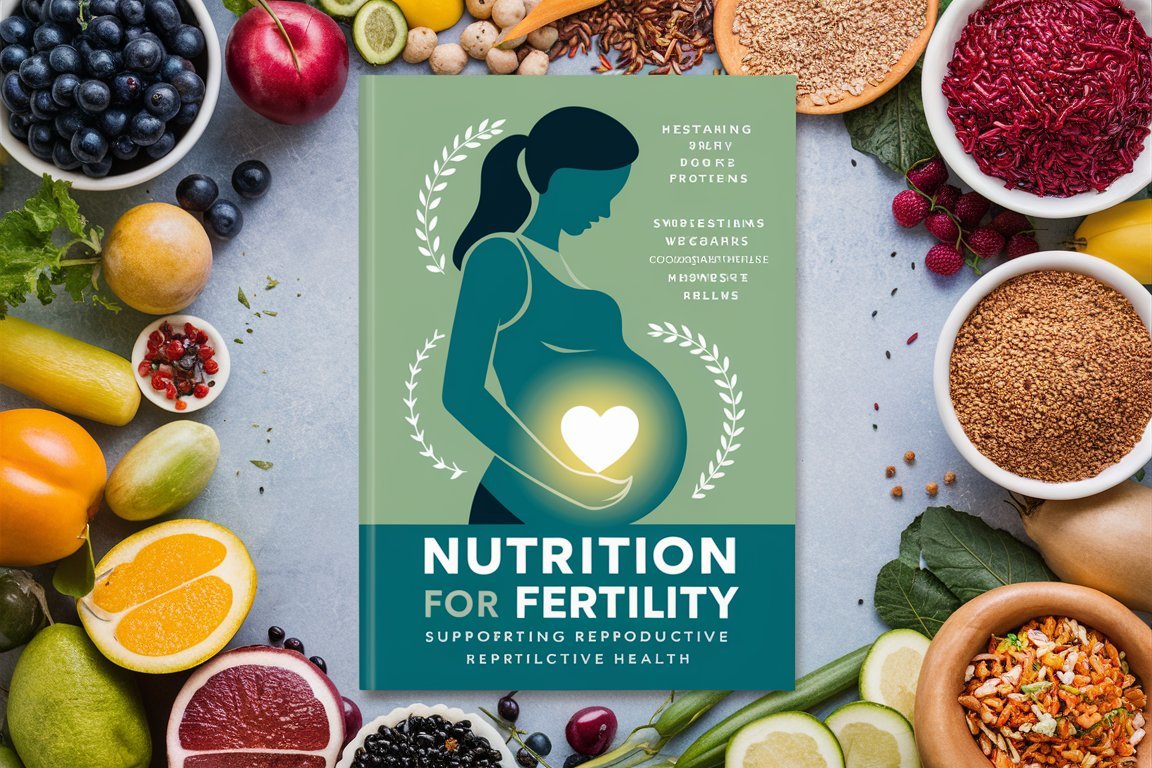
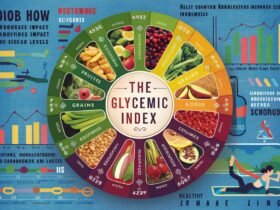




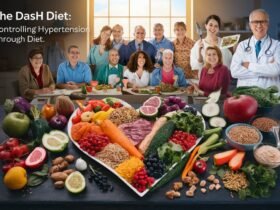
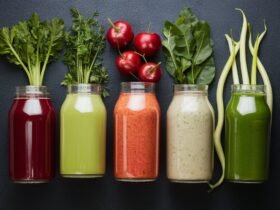
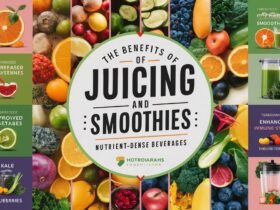
Leave a Reply